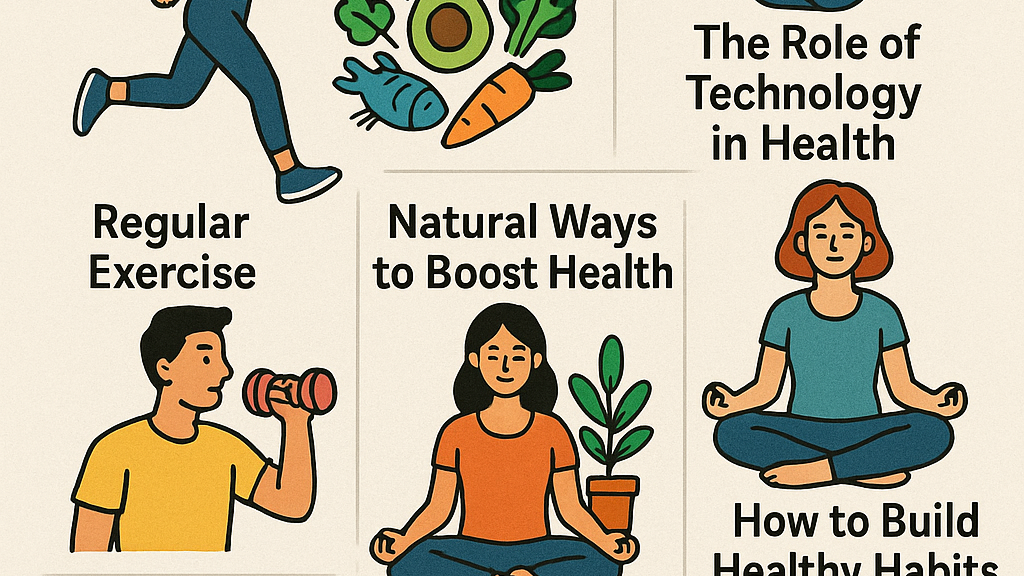Nutrition is not merely the act of eating — it is the science and practice of fueling the body with the nutrients it needs to repair, grow, prevent disease, and maintain optimal function. Every organ, every cell, and every body system depends on the quality of the food we consume. In this extensive guide, we explore the importance of nutrition, the science behind it, and the practical steps anyone can take to improve their life through balanced eating.
1. The Science Behind Nutrition
The human body is an extraordinarily complex machine that requires high-quality fuel to function efficiently. Nutrition is the foundation of health because it influences energy production, immunity, hormone balance, cognitive function, and longevity.
1.1. How the Body Uses Nutrients
When food enters the body, it is broken down into smaller components that serve different functions:
- Proteins → repair tissues, support muscle growth, build enzymes and hormones
- Carbohydrates → main energy source for brain and muscles
- Healthy fats → support heart health, hormone production, and brain performance
- Vitamins and minerals → regulate metabolism and support every body system
- Water → transports nutrients, regulates temperature, and eliminates waste
Example:
After eating a meal with chicken (protein), rice (carbohydrates), and vegetables (fiber & micronutrients), the body uses each component differently: protein repairs tissue, carbs give energy, and vitamins support digestion and immunity.
1.2. The Role of Metabolism
Metabolism is the process by which the body converts food into energy. A healthy metabolism depends on nutrient quality, physical activity, hydration, sleep, and hormonal balance — all influenced by nutrition.
2. Macronutrients: The Body’s Primary Fuel Sources
Macronutrients are needed in large quantities and serve as the building blocks of diet.
2.1. Proteins: Essential for Growth and Repair
Proteins are composed of amino acids, some of which the body cannot produce and must obtain from food.
Sources:
- Lean meats, fish, eggs
- Legumes, lentils, tofu
- Nuts and seeds
Example:
Athletes increase protein intake to repair muscle tissue after training.
2.2. Carbohydrates: The Preferred Energy Source
Carbs fuel the brain, nervous system, and muscles.
Two types:
- Simple carbs: fast-digesting, found in fruits and sugars
- Complex carbs: slow-digesting, found in whole grains and vegetables
Example:
Brown rice provides sustained energy, while white bread causes quick spikes in blood sugar.
2.3. Healthy Fats: More Important Than You Think
Healthy fats support cognitive function, joint lubrication, and heart health.
Sources:
- Olive oil, avocado, nuts
- Fatty fish like salmon
- Seeds such as chia and flax
Example:
A salad drizzled with olive oil boosts absorption of fat-soluble vitamins A, D, E, and K.
3. Micronutrients: Small in Amount, Big in Impact
Micronutrients include vitamins and minerals — essential for metabolic processes, immunity, and cellular repair.
3.1. Vitamins
- Vitamin A: vision, skin
- Vitamin C: immunity, collagen production
- Vitamin D: bone health, mood
- B-vitamins: energy production
3.2. Minerals
- Calcium: bones and muscles
- Iron: oxygen transport
- Magnesium: relaxation, sleep, nerve function
Example:
Iron deficiency can cause fatigue and weakness, especially in women and vegetarians.
4. The Importance of Hydration in Nutrition
Hydration is often overlooked, yet it is critical to nearly every body process.
4.1. Water and Metabolism
Water transports nutrients and helps convert food into energy.
4.2. Hydration and Digestive Health
Without enough water, digestion slows, causing constipation and bloating.
Example:
Drinking water before meals improves digestion and may prevent overeating.
5. Building a Balanced Plate
A balanced diet does not require strict rules — only smart proportions.
5.1. The Balanced Plate Formula
- 50% vegetables & fruits
- 25% lean protein
- 25% whole grains or healthy carbohydrates
- Healthy fats in small portions
5.2. Practical Balanced Meals
Example meals:
- Grilled chicken + quinoa + spinach salad
- Lentil soup + whole-grain bread + fruit
- Baked salmon + sweet potato + broccoli
6. Nutrition for Different Life Stages
Nutritional needs evolve with age.
6.1. Children
Need nutrients for growth: calcium, protein, and healthy fats.
6.2. Adults
Require balanced meals for energy, cognitive health, and disease prevention.
6.3. Older Adults
Need more vitamin D, calcium, protein, and hydration due to slower metabolism.
7. Common Nutritional Challenges and Solutions
Even with the best intentions, people face obstacles.
7.1. Busy Lifestyle
Solution: Meal prepping, healthy snacks, quick balanced meals.
7.2. Emotional Eating
Solution: Mindful eating, hydration, stress management.
7.3. Cravings
Solution: Increase protein intake and sleep quality.
8. A Weekly Nutrition Roadmap
Daily Habits
- Eat 3–5 servings of vegetables
- Drink 6–8 glasses of water
- Include protein in every meal
- Reduce refined sugars
Weekly Goals
- Cook at home at least 3 times
- Try a new healthy recipe
- Prepare snacks in advance
- Evaluate energy levels and mood
Conclusion
Nutrition is the foundation of health — influencing energy, immunity, mood, weight, and long-term wellness. By choosing whole foods, staying hydrated, understanding macronutrients and micronutrients, and building balanced meals, anyone can dramatically improve their quality of life. Good nutrition is not about perfection; it is about consistent, sustainable choices that nourish the body day after day.

yynvylnuokxrdjvxkrlhmhpjnvkjgw